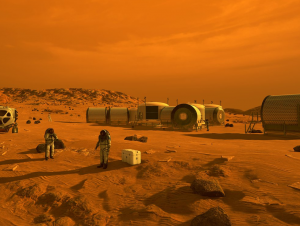To request a media interview, please reach out to experts using the faculty directories for each of our six schools, or contact Jess Hunt-Ralston, College of Sciences communications director. A list of faculty experts is also available to journalists upon request.
Latest News
Found at the boundary between land and water, wetlands function as natural sponges that trap, cleanse, and slowly release surface water – they also serve as a natural climate change buffer, since they act as carbon “sinks,” storing vast amounts of carbon and methane in the ground. Swamps, marshes, and bogs are all examples of wetlands. What isn’t known is if wetlands that become damaged or degraded from excess water will still absorb carbon at the same level. By better understanding how wetlands work, Georgia Tech hopes to shed light on how wetlands will function with more frequent and more intense rainstorms.
Plans to Expand Spring Semester
Kristen Marhaver (BIO 04) speaks for the corals. The scuba diver, underwater photographer, and world-renowned expert in coral breeding has racked up more than 2.3 million views of her engaging TED talks, in which she shares her ground-breaking innovations and heartfelt passion for preserving these little-understood and greatly undervalued marine creatures.
This semester, the Georgia Tech Math Lab offers two options for student learning: free outdoor tutoring in Skiles Courtyard during the day, and free online sessions in the evenings.
John F. McDonald and his research team have created a ‘multi-algorithm’ machine learning approach to boost accuracy in predicting drug responses for ovarian cancer patients.
Researchers at the Georgia Institute of Technology have developed a concept that would make Martian rocket fuel, on Mars, that could be used to launch future astronauts back to Earth.








